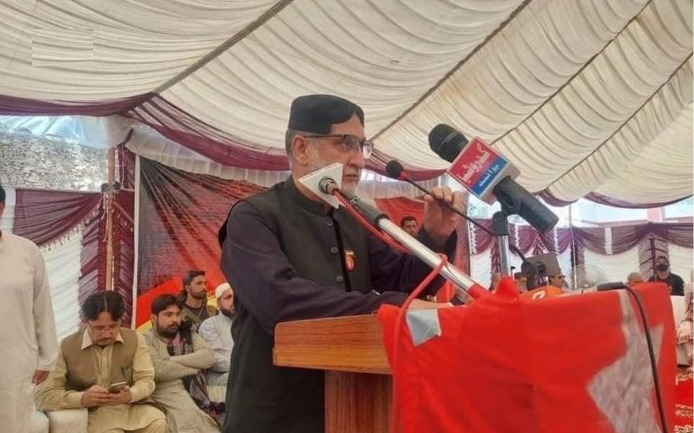In a recent interview, Sardar Akhtar Mengal, the chief of the Balochistan National Party (BNP), lambasted the Pakistan Democratic Movement (PDM) coalition government. Mengal asserted that the PDM government was established with the assistance of the military establishment, and had it not been for differences between General Bajwa and Prime Minister Imran Khan, the coalition would never have come into existence.
Mengal’s criticism of the PDM government was notable, as he pointed out the government’s actions, including amending the National Accountability Bureau (NAB) and passing 56 bills in a single day in the assembly. He claimed that despite these moves, not a single bill from his party was passed.
Hard to align with others now
He expressed his disappointment in the major political parties, including PML-N, PPP, and PTI, stating that he would think long and hard before forming an alliance with any of these parties. Mengal highlighted how these parties sought support during elections but seemed to forget their promises once in power.
When asked about whether he felt exploited by the PDM government, Mengal commented that such exploitation was commonplace in politics, with parties using each other for their own interests.
Mengal recalled a meeting with Shehbaz Sharif, where he had emphasized the importance of not leaving Balochistan at the mercy of the establishment, a concern that Mengal believed was ignored.
He mentioned the issue of missing persons, which became a point of contention during the PDM government’s formation. When no action was taken on this issue, the Mengal group began resigning from the cabinet.
Mengal also revealed that after the resignation of two ministers, discussions were initiated. He disclosed that the military establishment played a significant role in the formation of the coalition government, with General Qamar Javed Bajwa meeting him and attempting to balance relations with both the PDM and PTI.
General Bajwa urged both sides to avoid confrontation and remain cooperative. Mengal emphasized that if it were not for the differences between General Bajwa and Imran Khan, the PDM coalition would not have come to fruition.
Regarding the upcoming elections in Pakistan, Mengal mentioned that immediately after the PDM’s formation, it was decided that elections would be held promptly after the success of the movement.
Question on Nawaz Sharif’s return
Mengal expressed his concerns about the return of PML-N leader Nawaz Sharif, questioning the timing of his return. He suggested that the circumstances of Nawaz Sharif’s return raised doubts, especially as the election approaches, and he urged Nawaz Sharif to provide an explanation to his former allies.
Mengal concluded by expressing his frustration with the government’s inability to do anything other than address its own legal cases. He doubted whether any major party would genuinely desire early elections, as it could lead to uncertainty regarding the fate of the PDM coalition and the PTI government.
In light of these developments, the political landscape in Pakistan remains complex and fluid, with key players making significant claims about the role of the military establishment in shaping the country’s political dynamics.
Clashes of Wadh and disillusionment of BNP-M Chief
It is worth mentioning that Mengal tribes led by Shafiq Mengal and Akhtar Mengal supporters fought a fierce gun battle in past four months which ended a few weeks ago. Due to the heavy shelling and use of military grade armoury like machine guns and rocket launcher, the region of Wadh saw months of ceasure. The reason for the clashes was the spying on Baloch nationals and their enforced disappearance by a Pak Army sponsored death squad headed by Shafiq Mengal.
The faction of Akhtar Mengal had then accused Shafiq of using death squad to weaken the Baloch nationalists ahead of the upcoming elections. Since Wadh is retuning to normalcy and the fighters have withdrawn from the trenches (from where they attacked each other), Akhtar Mengal’s statements show disillusionment form the Pakistan military and political parties that have for long harboured these death squads and sidelined the political rights of Baloch nationals.

